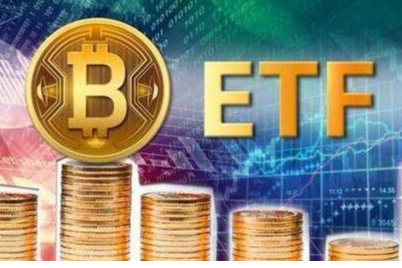The approval of the SEC is a meticulous process that considers multiple factors, including custody, market surveillance, liquidity, and the arbitrage mechanism of ETFs.
By Susie Violet Ward
Translated by: Luffy, Foresight News
Overnight, the news of the listing of the iShares Bitcoin Trust by BlackRock on the US Securities and Exchange Commission has caused a stir in the cryptocurrency market, leading Bitcoin to surge to a new high of $35,000 for the year. The festive market seems to indicate that the approval of a spot Bitcoin ETF is imminent. But is the spot Bitcoin ETF really about to be approved? What conditions does it need to meet? An article by Forbes contributor Susie Violet Ward explains the conditions and steps for the approval of a spot Bitcoin ETF by the SEC, translated by Foresight News as follows:

The concept of a spot Bitcoin ETF has long been an interesting topic in the Bitcoin and investment community. Although the US Securities and Exchange Commission (SEC) has not yet approved such funds, understanding the modern regulatory framework proposed by the SEC can help you gain a deeper understanding of how a spot Bitcoin ETF may eventually be approved.
Transition from Traditional to Modern
Typically, financial institutions seeking to launch an ETF must submit a comprehensive application to the SEC. The proposal outlines the structure, objectives, and risk factors of the ETF. A 2018 proposal by the SEC aimed to simplify this process by replacing hundreds of individual exemptions with a single rule. ETFs meeting specific conditions can be listed directly without the need for individual exemptions, thereby expediting the listing process.
SEC Review Based on Rule Framework
After the application, the US Securities and Exchange Commission reviews the proposal, focusing on investor protection and market integrity. Under the modern framework, a set of standard conditions applies to all ETFs. This "rule-based framework" aims to provide a level playing field for most ETFs and protect investors.
While the SEC's responsibility is to protect investors, its approach to spot Bitcoin ETFs has raised questions about the extent to which it effectively fulfills this responsibility. The US Securities and Exchange Commission has expressed willingness to approve alternative financial products such as Bitcoin futures ETFs, but some critics argue that these products cannot directly access Bitcoin like spot ETFs. This has even prompted members of Congress to write an open letter to SEC Chairman Gary Gensler, urging the commission to clarify its position.
Evaluation Criteria
During the review process, the SEC evaluates the following key factors:
- Custody: The US Securities and Exchange Commission assesses the custody mechanism for Bitcoin, examining how assets are securely held to prevent theft or fraud.
- Market Surveillance: The SEC reviews whether the Bitcoin market has appropriate monitoring to prevent manipulation, fraud, or other illegal activities.
- Liquidity: Examining the liquidity of the Bitcoin market. The SEC aims to ensure that the ETF can be easily traded without causing significant price discrepancies.
- Arbitrage Mechanism: Applicants must detail how the ETF's price will track the price of Bitcoin. An effective arbitrage mechanism is crucial to maintaining the ETF's price consistent with its net asset value.
During the approval process for ETFs, the SEC often engages in repeated dialogue with applicants. This is typically done to clarify details, request more information, or discuss potential issues. The process is ongoing and may require multiple rounds of communication before a decision is made.
Public Opinion and Transparency Requirements
The US Securities and Exchange Commission frequently opens a window for public opinion, which remains crucial even in the modern framework. Additionally, the proposed rules require transparency of the daily investment portfolio on the ETF's website, which may apply to a spot Bitcoin ETF to ensure that investors have real-time visibility into the fund's holdings.
Custom Baskets and Website Disclosures
A spot Bitcoin ETF operated under the proposed rules will be allowed to use "custom baskets," which do not reflect the fund's investment portfolio in proportionate terms. The modern framework also emphasizes website disclosures, requiring the ETF to disclose historical information on premiums, discounts, and bid-ask spreads.
Final Step: SEC Decision and Approval
After comprehensive evaluation and consideration of public opinion, the SEC makes the final decision. If approved, the ETF can immediately commence operations and be listed and traded on major stock exchanges. This provides investors with a regulated way to track Bitcoin and its price movements.
Conclusion
The process of the SEC approving a spot Bitcoin ETF is moving in the right direction. The approval by the SEC is a meticulous process that considers multiple factors, including custody, market surveillance, liquidity, and the arbitrage mechanism of ETFs. Public opinion is a key component, allowing stakeholders to express their concerns or support. The timeline for approval may be uncertain, but approval will provide investors with an easier entry point.
Cathy Wood has stated that when the SEC finally agrees, it may approve all spot Bitcoin ETFs simultaneously. This may help clarify the confusing regulatory environment.
As Bitcoin continues to mature, the approval of a spot Bitcoin ETF seems inevitable, with many experts claiming that we may see multiple approvals by the end of this year.
免责声明:本文章仅代表作者个人观点,不代表本平台的立场和观点。本文章仅供信息分享,不构成对任何人的任何投资建议。用户与作者之间的任何争议,与本平台无关。如网页中刊载的文章或图片涉及侵权,请提供相关的权利证明和身份证明发送邮件到support@aicoin.com,本平台相关工作人员将会进行核查。




